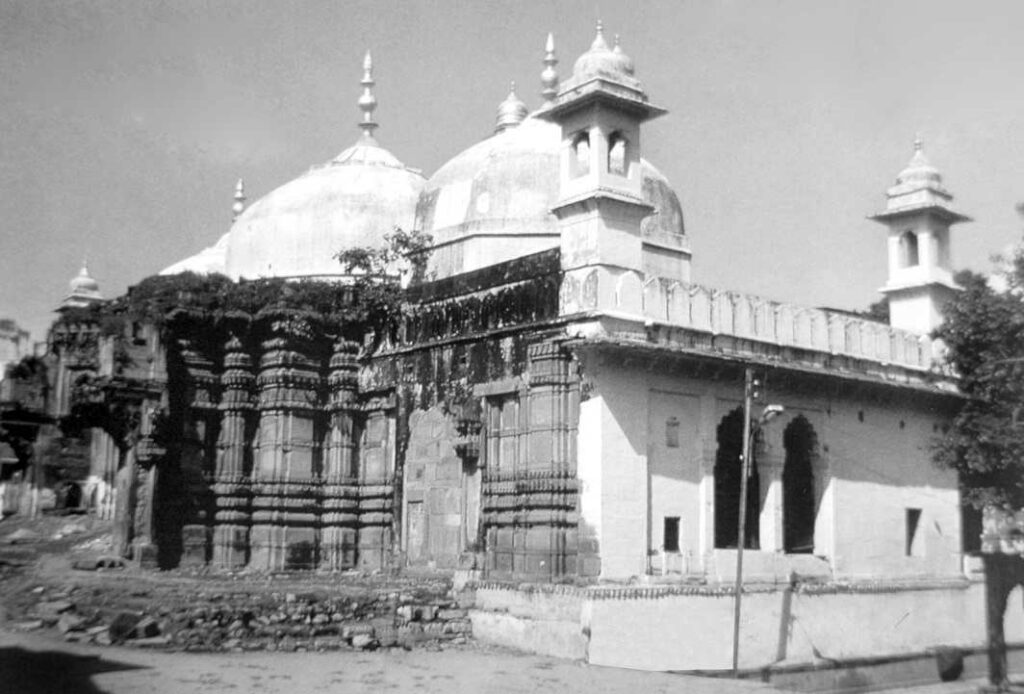Nithyakalyani Narayanan. V
On May 31st, the Allahabad High Court upheld a Varanasi Court order finding the challenge brought by Hindu parties seeking the right to worship inside the Gyanvapi Mosque to be maintainable.
The single judge bench observed that the Hindu parties performed darshan and puja of Goddess Maa Sringar Gauri, Lord Ganesha, Lord Hanuman, and other deities in the suit property every day up to the year 1990, once a year after 1993. Therefore, if the Hindu parties who are involved in the case or followers who share their beliefs are permitted to pray on the grounds of the Gyanvapi Mosque once a year, then doing so every day might not alter the Mosque’s identity. The Court said, “This Court fails to see that if the plaintiffs or devotees like them can do pooja and darshan of the deities on a single day in the year with no threat to the mosque’s character, how the making of it a daily or a weekly affair, would lead to a conversion or change of the mosque’s character”.
The Court also observed that, “The mere asking to enforce a right to worship Maa Sringar Gauri, Lord Ganesha, Lord Hanuman and the other Deities, located in the suit property at their specified place, is not an act that changes the character of the Gyanvapi Mosque into a temple. It is no more than the seeking of a full enforcement of a subsisting right that inheres in the plaintiffs and since long exercised by other devotees like them until a time much after 15th August, 1947”.
These statements were given by the Court in response to a revision petition that the Committee of Management of Anjuman Intezamia Masjid had submitted in opposition to a district court ruling that the lawsuit was maintainable. The District Court dismissed the petition filed by the Muslim party challenging the maintainability of the suit.
The Places of Worship (Special Provisions) Act, which mandates that a place of worship maintain its religious character as of August 15, 1947, was cited by the Muslim parties, who claimed that the plaint should be dismissed without a trial. They claimed that the building was a mosque as on 15th August and therefore it must continue as such. The opposite parties claimed that the idols were existing since time immemorial in the property and therefore the provisions of the Act would not bar the suit. Also, they have been performing pooja and darshan regularly until 1990 and annually after 1993.
The Court held that the plaintiffs were merely attempting to enforce a pre-existing right of worship that they had been using since after August 15, 1947. “It is not that the plaintiffs, in any manner, wish to bring about any change to the suit property or alter its character, in whatever manner existing,” the Court observed.
Justice Munir stated that the Places of Worship (Special Provisions) Act 1991 did not apply to the case. The act aims to preserve all religious buildings in their original condition as of the date of independence by prohibiting courts from hearing cases that raise questions about the nature of such places of worship.
The judge upheld the Varanasi court’s order by noting that “The learned District Judge has, more or less for the same reasons, held that the suit is not barred by the Act of 1991 and this Court, for all that has been said, does not find any ground to interfere with that conclusion.”
Name of the Case: Committee of Management, Anjuman Intezamia Masajid, Varanasi v. Rakhi Singh
Citation: 2023: AHC: 123171
Bench: Justice J J Munir
Click here to access the order.

